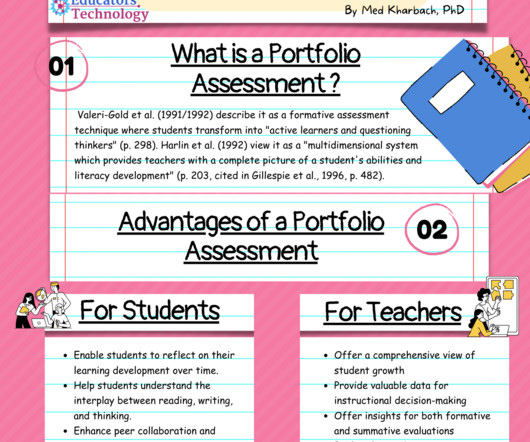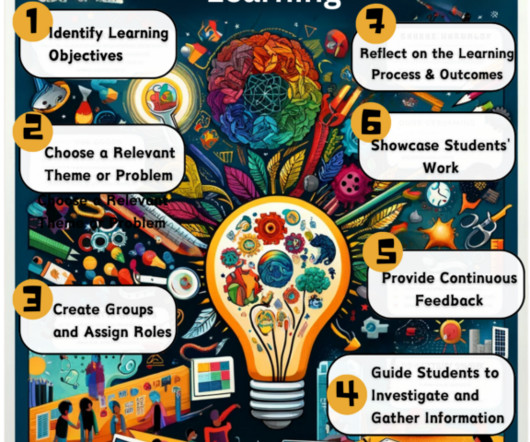What is A Portfolio Assessment?
Educational Technology and Mobile Learning
DECEMBER 28, 2023
In the ever-evolving landscape of education, the concepts of portfolio and portfolio assessment have garnered significant attention as comprehensive tools for evaluating student growth. These papers offer a deep dive into the benefits and challenges of portfolio assessment in educational settings. 1991/1992) and Gillespie et al.




















Let's personalize your content